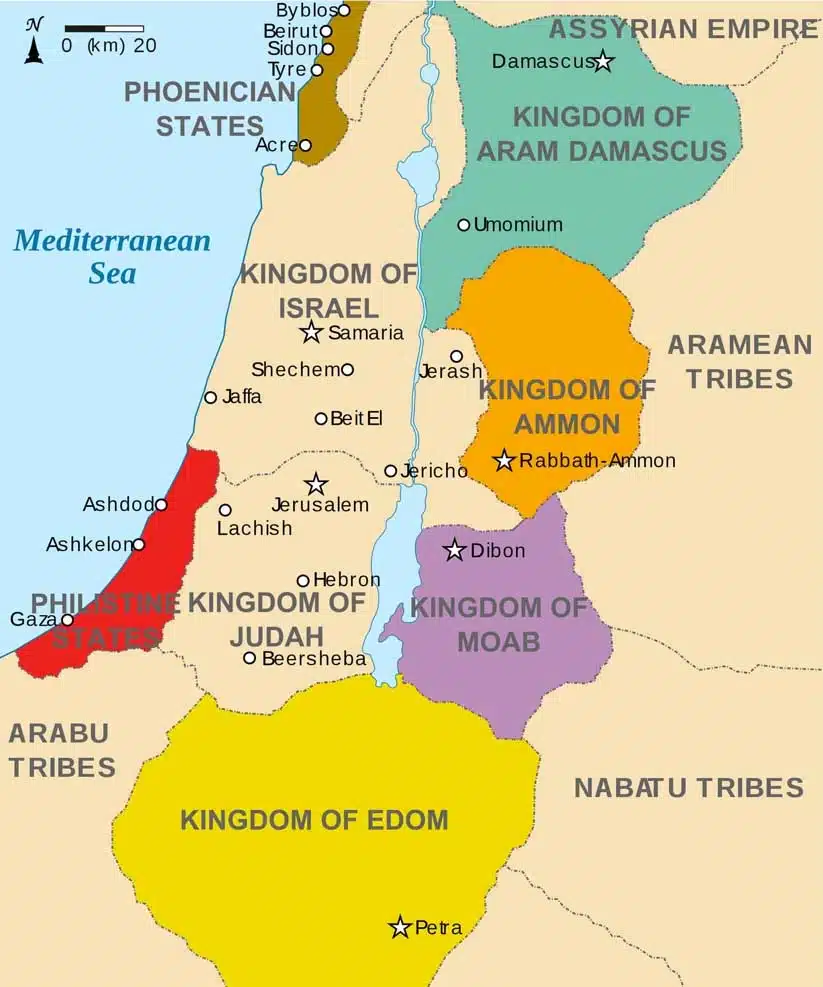Since there was no one to provide for Ruth and Naomi, Ruth asked if she could go and glean grain to provide food.
During the period of the Judges Israel was self-governing. The law was given by God, and they chose judges from among themselves. But it was up to the people to enforce compliance. There was no central authority. One of God’s laws dealing with the poor was found in instructions the LORD gave to Moses in Leviticus 23:22—
‘When you reap the harvest of your land, moreover, you shall not reap to the very corners of your field nor gather the gleaning of your harvest; you are to leave them for the needy and the alien. I am the Lord your God.’”
Apparently Ruth knew this provision, because she petitions Naomi to give her permission to apply this provision and glean in the fields, saying Please let me go to the field and glean among the ears of grain after one in whose sight I may find favor. Naomi grants permission to Ruth, saying Go, my daughter. So she departed and went and gleaned in the field after the reapers; and she happened to come to the portion of the field belonging to Boaz, who was of the family of Elimelech, who was Naomi’s deceased husband.
Given the overarching theme of God’s hand and sovereignty, it is interesting that the scripture chooses the wording that Ruth happened to come to Boaz’s field. It seems that this choice was genuine happenstance, while God was simultaneously moving His sovereign hand.
The story introduces Boaz as a kinsman of Naomi’s husband, and a man of great wealth. Boaz appears to have been wealthy in part because he was so attentive to his affairs. He notices Ruth gleaning in his field. Boaz greets his workers with a greeting of May the Lord be with you. This apparently was a normal greeting of the day, because his servants return favor to him, saying in return “May the Lord bless you.” It is clear that during this era Israel had a clear connection with the God of Israel, even in their every day conversation.
Then Boaz said to his servant who was in charge of the reapers, “Whose young woman is this?” We are not told at this point why Boaz is interested in knowing about the young woman. Boaz does not question her right to glean in his field.
We were told the women of the village noticed Naomi and Ruth coming to town. They have also spread the news. The servant in charge of the reapers replied, “She is the young Moabite woman who returned with Naomi from the land of Moab. The head servant had given her permission to glean after Ruth made a gracious request, saying Please let me glean and gather after the reapers among the sheaves. Ruth did not demand, but requested. After noting her hard work all morning, they allowed her to rest and sit in the house for a little while.
Biblical Text
Now Naomi had a kinsman of her husband, a man of great wealth, of the family of Elimelech, whose name was Boaz. 2 And Ruth the Moabitess said to Naomi, “Please let me go to the field and glean among the ears of grain after one in whose sight I may find favor.” And she said to her, “Go, my daughter.” 3 So she departed and went and gleaned in the field after the reapers; and she happened to come to the portion of the field belonging to Boaz, who was of the family of Elimelech. 4 Now behold, Boaz came from Bethlehem and said to the reapers, “May the Lord be with you.” And they said to him, “May the Lord bless you.” 5 Then Boaz said to his servant who was in charge of the reapers, “Whose young woman is this?” 6 The servant in charge of the reapers replied, “She is the young Moabite woman who returned with Naomi from the land of Moab. 7 And she said, ‘Please let me glean and gather after the reapers among the sheaves.’ Thus she came and has remained from the morning until now; she has been sitting in the house for a little while.”
Check out our other commentaries:
-
Zechariah 1:8-17 meaning
Zechariah receives his first vision. He sees a patrol of heavenly horsemen mounted on horses of various colors. These horsemen report that all the earth...... -
Numbers 8:20-22 meaning
Verses 20 – 22 record the completion of the ceremony by the Israelites. It involved the purification of the Levites and their presentation to the...... -
Romans 9:24-26 meaning
Paul is telling his audience of believers in Rome at the time, a group that contains both Jews and Gentiles (those who are non-Jewish), that...... -
Exodus 1:15-22 meaning
The second plan was even more severe – the midwives were to kill all the male Hebrew sons when they are born. But this plan...... -
Deuteronomy 12:15-16 meaning
Moses gives guidelines concerning the slaughter of animals to be used for meals and not for sacrifices.......



